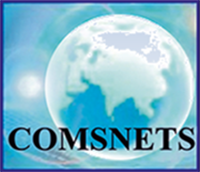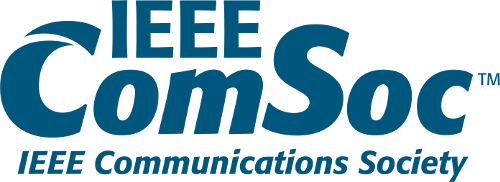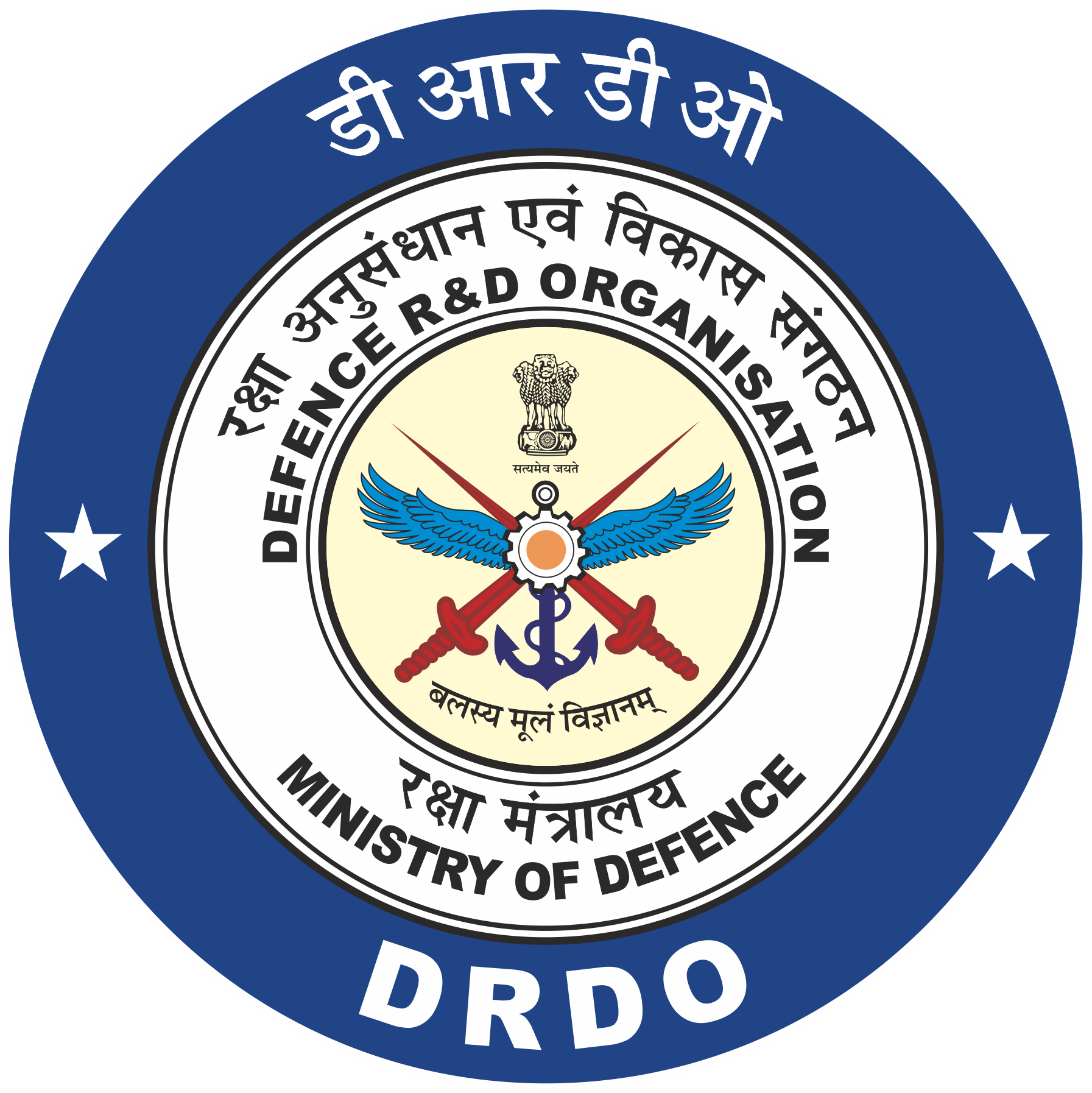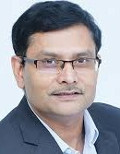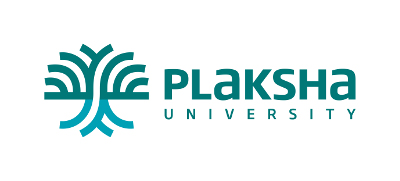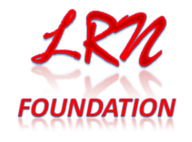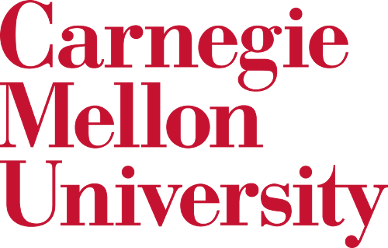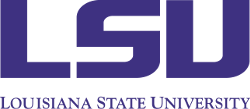Workshop on Standards-driven Research
All workshops will be conducted in a hybrid mode. However, we strongly encourage physical attendance (including delegates/authors/speakers/chairs and OC members) for the workshops, especially if you are in India. There will be travel grant opportunities for authors traveling from within India.
Schedule
| Time | Sessions | Title | Authors |
|---|---|---|---|
| 10:00-10:15 | Welcome by Chairs | ||
| SESSION 1: Performance Studies | |||
| 10:15-11:00 | Keynote | Aloknath De | |
| 11:00-11:20 | Performance Studies: Paper 1 | Multi-cluster Dynamic Load Balancing in vSDN-enabled 5G Heterogeneous Network for Smart Cyber-Physical Systems | Deborsi Basu; Abhishek Jain; Addanki Sankara Rao; Uttam Ghosh; Raja Datta |
| 11:20-11:40 | Tea break | ||
| 11:40-12:00 | Performance Studies: Paper 2 | Performance Analysis of Channel-Dependent Rate Adaptation for OFDMA transmission in IEEE 802.11ax WLANs | Sheela C S; Joy Kuri; Nadeem Akhtar |
| 12:00-12.20 | Performance Studies: Paper 3 | Prediction of Maximum Expected Delay using Enhanced Link Adaptation for 5G mm-Wave Network | Ashutosh Ranjan Dwivedi; Ankur Chauhan |
| 12:20-1:05 | Keynote | Gerhard Fettweis | |
| 1:05-2:20 | Lunch | ||
| SESSION 2: Potential Applications | |||
| 2:20-2:40 | Potential Applications: Paper 1 | Standardization aspects of Tactile applications on Multi-access Edge Computing | Ashish Singh Patel; Pimmy Gandotra; Rajesh Kumar; Arzad Kherani; Brejesh Lall; Sudipto Mukherjee |
| 2:40-3:00 | Potential Applications: Paper 2 | Transformation from 5G for Verticals towards a 6G-enabled Internet of Verticals | Maziar Nekovee |
| 3:00-3:20 | Potential Applications: Paper 3 | A Survey on Rural Internet Connectivity in India | Shruthi Koratagere Anantha Kumar; Vigneswara Ihita Gangavarapu; Sachin Chaudhari; Paventhan Arumugam |
| 3:20-3:40 | TSDSI Invited Talk | Enabling Ultra-dense Wireless Networks toward 6G Era | Xun Zhang and John Cosmas |
| 3:40-4:00 | Tea break | ||
| SESSION 3: Technologies | |||
| 4:00-4:45 | Keynote | Devaki Chandramouli | |
| 4:45-5:05 | Technologies: Paper 1 | Evaluation of the IMT-2020 candidate radio interface technology DECT-2020 NR | Konstantinos Maliatsos; Antonis G Gotsis; Angeliki Alexiou |
| 5:05-5:25 | Technologies: Paper 2 | Tracking Resurgence of Ultra-Wideband - A Standards and Certification Perspective | Karthik Srinivasa Gopalan; Ankur Bansal; Aniruddh Rao Kabbinale |
| 5:25-5:40 | Closing remarks | ||
Accepted Papers
- Multi-cluster Dynamic Load Balancing in vSDN-enabled 5G Heterogeneous Network for Smart Cyber-Physical Systems
Deborsi Basu; Abhishek Jain; Addanki Sankara Rao; Uttam Ghosh; Raja Datta - A Survey on Rural Internet Connectivity in India
Shruthi Koratagere Anantha Kumar; Vigneswara Ihita Gangavarapu; Sachin Chaudhari; Paventhan Arumugam - Standardization aspects of Tactile applications on Multi-access Edge Computing
Ashish Singh Patel; Pimmy Gandotra; Rajesh Kumar; Arzad Kherani; Brejesh Lall; Sudipto Mukherjee - Performance Analysis of Channel-Dependent Rate Adaptation for OFDMA transmission in IEEE 802.11ax WLANs
Sheela C S; Joy Kuri; Nadeem Akhtar - Prediction of Maximum Expected Delay using Enhanced Link Adaptation for 5G mm-Wave Network
Ashutosh Ranjan Dwivedi; Ankur Chauhan - Evaluation of the IMT-2020 candidate radio interface technology DECT-2020 NR
Konstantinos Maliatsos; Antonis G Gotsis; Angeliki Alexiou - Tracking Resurgence of Ultra-Wideband - A Standards and Certification Perspective
Karthik Srinivasa Gopalan; Ankur Bansal; Aniruddh Rao Kabbinale - Transformation from 5G for Verticals towards a 6G-enabled Internet of Verticals
Maziar Nekovee
Background
Standards are considered as enablers and facilitators for research, and standardization remains a technology transfer channel for the research to get into limelight. Despite the widespread use of standards, they often remain hidden when we discuss research. The rationale seems to be to keep the researcher free from the constraints of limiting the scope of innovation. While this helps, it also leads to several of these innovations not finding the light of the day. And it is for that reason, institutions across the world are now motivating researchers to focus on innovations that can be practiced. This is very critical for smaller entities to participate in global scale projects. As these projects get modularized, standards driven research allows individual entities to focus or leverage their skill sets, while simultaneously allowing interoperability with another entity’s solutions. Our goal in this workshop is not only to foster a better understanding of the advantages that standards, but to focus on those aspects of interoperability which asks for the standardization need in the first place. It also lays emphasis on the role of evaluation methodologies and models used in the standardization process, that becomes the framework to compare performance across different proposals and how it can be leveraged by researchers while investigating new techniques and algorithms.
Rationale
There is a continuous effort put into the evolution of networks and systems to remain in pace with the need. Every few years, there are transformative research happening in these fields, which find their way into commercial systems in a few years further. A continuous effort is also put into the development of internationally harmonized standards development, so that such innovation become useful. International Standards mean that consumers can have confidence that their products are safe, reliable and of good quality. Regulators and governments count on standards bodies like the ISO, ITU, 3GPP, IEEE, ETSI, etc. to help develop better regulation, knowing they have a sound basis thanks to the involvement of globally established experts.
There are many contradictory views about importance of standards in research and innovation. Research & innovation motivates standardization, and standardization of solutions require further research & innovation, thereby keeping this vicious cycle active. The purpose of this workshop is to bring together innovative minds researching in networking and communication systems to connect and exchange ideas on topics that involve standardized solutions.
Topics of interest include, but are not strictly limited to:
- The role of machine learning and artificial intelligence in intelligent network solutions
- Need for standardized solutions to exploit the true benefits of signal processing
- Next generation communication system design
- Evaluation methodologies and models for validating new use cases
- Technical assessment to the pros and cons of open interfaces in communication system design.
Submission Guidelines
- Standards-driven Research workshop invites submission of original work not previously published, or under review at another conference or journal.
- Submissions (including title, author list, abstract, all figures, tables, and references) must be no greater than 6 pages in length.
- Reviews will be single-blind: authors names and affiliations should be included in the submission.
- Submissions must follow the formatting guidelines as given on IEEE Website; and those that do not meet the size and formatting requirements will not be reviewed.
- All papers must be in Adobe Portable Document Format (PDF) and submitted through the SDR Workshop submission site on EDAS.
- All workshop papers will appear in conference proceedings and submitted to IEEE Xplore
Paper submission link: https://edas.info/N28676
Important Deadlines
| Paper Submission Deadline | |
| Notification of Acceptance | 10th December 2021 |
| Camera-ready Submission | 15th December 2021 |
Workshop Co-Chairs

Jean-Pierre Bienaimé
TSDSI, India & Ubiquity Consulting, France.

Puneet Jain
Intel, USA

Vinosh Babu James
Qualcomm, India

Arzad Alam Kherani
IIT Bhilai, India
